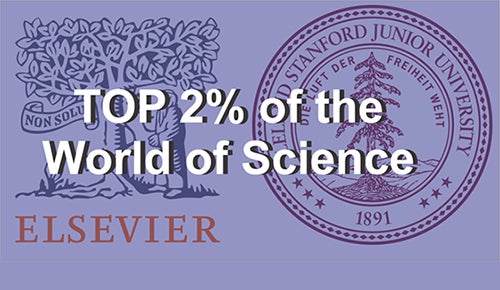Four UC Riverside research scientists have been named among the top 2% of scientists worldwide in a list compiled by Stanford University and Elsevier. The accolade recognizes their significant contributions to addressing global environmental challenges and advancing sustainable solutions.
The list is based on cumulative number of times a scientist’s work has been cited by others, and the productivity and citation impact of a researcher’s publications, among other metrics.
The research scientists, all part of UCR’s College of Engineering Center for Environmental Research and Technology, or CE-CERT, are:
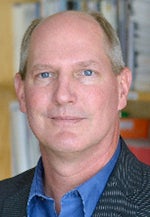
Matthew Barth, the Esther and Daniel Hays professor of electrical and computer engineering and associate dean for research and graduate education at the Bourns College of Engineering. Barth specializes in intelligent transportation systems. His research addresses how transportation technologies, including electric vehicles and automated systems, can reduce environmental impacts. It has produced real-world solutions, ranging from sustainable transportation initiatives to smart infrastructure development. With a broad body of research, Barth pushes the boundaries in sustainable mobility.
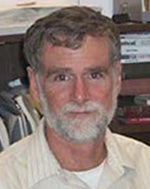
William “Bill” Carter, an emeritus research chemist at CE-CERT. Carter is internationally recognized for his contributions to atmospheric chemistry. His work on the reactivity of volatile organic compounds and their role in ozone formation has been instrumental in shaping air quality models used by agencies worldwide. With over 100 journal articles and technical reports, Carter’s research has brought understanding of the chemistry of urban air pollution and the mechanisms behind ozone production and thus had significant regulatory impacts.
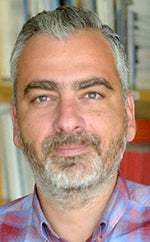
Georgios Karavalakis, a professor of chemical and environmental engineering. Karavalakis leads experimental research in combustion engines and alternative fuels. His work focuses on understanding the environmental effects of low-carbon and zero-carbon fuels, and he has contributed to key research on emissions reduction and secondary aerosol formation from combustion engines. His research has been widely published in high-impact journals, and his findings are critical for advancing global efforts to reduce vehicle emissions and improve air quality.
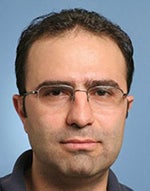
Hamed Mohsenian-Radan Institute of Electrical and Electronics Engineer (IEEE) fellow, Bourns Family Faculty Fellow, and a professor in the Department of Electrical and Computer Engineering. His expertise lies in smart grid applications and power system optimization. He has developed data-driven and optimization-based techniques for improving energy efficiency and grid reliability. Recognized with multiple awards, including the NSF CAREER Award, his research also spans power system cybersecurity. Mohsenian-Rad’s work has been instrumental in advancing the design and operation of modern energy systems, contributing to over $15 million in funded research projects. He and Barth were recently co-authors of “California Grid Readiness: Stakeholder and Public Awareness,” a paper that called for proactive, collaborative, and equitable upgrades for California’s electrical grid to increase its capacity and flexibility.
